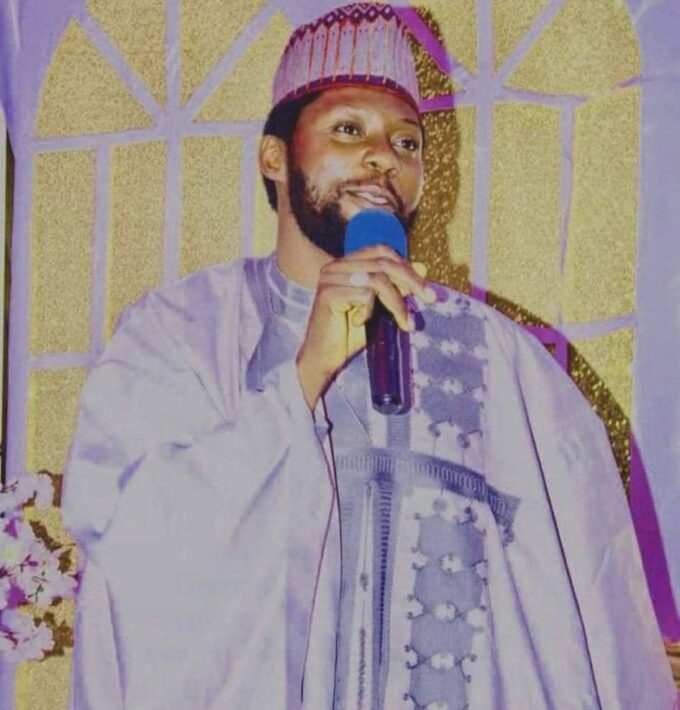On 19 October 2020, amid the crescendo of the #EndSARS protests in Nigeria, Comrade Shehu Sani offered a poignant admonition: “You were patient with the injustices, be patient with the protests.” These words expose a profound moral paradox within a society that long endured systemic abuse, yet recoiled at the eruption of resistance. Protest, far from chaos, stands as a response to prolonged silence and suffering.
Akwai lokuttan da haƙuri kan kai makura, daganan sai a ɗauki mataki: meaning, when patience attains its limits, then action becomes necessary.
The #EndSARS movement, a youth-driven uprising against the brutal Special Anti-Robbery Squad (SARS), arose from documented cases of torture, extortion, and extrajudicial killings. Amnesty International reported at least 82 abuses by SARS between 2017 and 2020. Despite its peaceful and organised nature, the protest met violent repression, most notably the tragic Lekki Toll Gate incident on 20 October 2020. The call for patience underscores the painful truth that people bore injustice silently for years, yet were quick to criticise when resistance finally emerged.
Wani lokaci haƙuri kan zama laifi: meaning, sometimes, patience becomes a fault.
From the lens of liberation theology and African spiritual traditions, protest is not mere rebellion; it is a sacred duty. Faith cannot remain mute before injustice. Whether in Nigeria, Gaza, or amid Rohingya persecution, silence betrays prophetic teachings common to both Islamic and Christian faiths. This message reminds religious leaders that tolerating injustice while condemning protest reveals moral inconsistency. Nigeria’s rich religious tapestry, both Christian and Muslim, holds the power to guide public ethics. Justice, not mere order, must remain the cornerstone of public theology.
Adalci shine ginshikin zaman lafiya: meaning, justice is the pillar of peace.
Classical social movement theories explain protest as a result of tension between societal ideals and lived realities. In Nigeria, decades of failed governance, police brutality, youth unemployment, and social neglect have fuelled this tension. Successful movements seize political opportunities and mobilise effectively, as #EndSARS showed through digital coordination. Similar patterns appear in Black Lives Matter, the Rohingya diaspora, and Palestinian solidarity campaigns. With more than 70 percent of Nigerians under 40, youth remain pivotal agents of change.
Matasa sune jagororin canji: meaning, youth are the leaders of change.
Modern theoretical perspectives suggest that movements like #EndSARS go beyond policy demands; they represent calls for recognition, identity, and dignity. This generation, marginalised economically and politically, finds its voice through protest. In this context, patience is not a passive act but a search for meaning. From Black Lives Matter in the United States to Rohingya resistance in Myanmar, and among Nigeria’s Shia communities and victims of terrorism, protest becomes a declaration of existence and a claim to better conditions. In contrast, silence validates systems that deny such existence.
Shiru yana tabbatar da zalunci: meaning, silence affirms oppression.
Critical theory shows how dominant systems often recast protest as disorder in order to protect their authority. The call to be patient with protests unveils this strategy, revealing how society frequently tolerates structural violence more easily than it does voices of resistance. Globally, this pattern is visible. In Gaza, suffering is reframed as a security issue. In the US, Black Lives Matter activists face vilification. In northern Nigeria, victims of Boko Haram are often forgotten. The statement challenges these distortions, calling for peace to be defined not as quietness but as the presence of justice.
Zaman lafiya ba rashin amo ba ne, zaman lafiya shine kasancewar adalci: meaning, peace is not the absence of noise; peace is the presence of justice.
The lessons of #EndSARS remain as urgent as ever. President Bola Ahmed Tinubu’s administration must seize this moment to listen, learn, and govern with empathy. Criminalising dissent or branding protest as a threat only deepens the divide between leaders and the people. Nigeria’s youth are not adversaries; they are the heartbeat of the nation. Policies should confront the root causes of unrest: poverty, insecurity, police abuse, and political exclusion. Just as the oppressed once showed patience, leaders must now be patient in hearing their call for justice, responding with accountability rather than repression.
Juyayin matasa ba ya karya zuciya, amma yana kira ga adalci: meaning, the lament of the youth does not break the heart, it calls for justice.
The dictum “You were patient with the injustices, be patient with the protests” transcends Nigeria. It echoes in the struggles of Palestinians, the Rohingya, Black Lives Matter activists, and victims of Boko Haram. It reminds us that where injustice is endured, protest becomes both inevitable and necessary. To listen to the oppressed is not a threat to peace. It is the beginning of it.
Adalci ba wai tsari kawai ba ne; shine tushen zaman lafiya: meaning, justice is not merely order; it is the foundation of peace.














Leave a comment